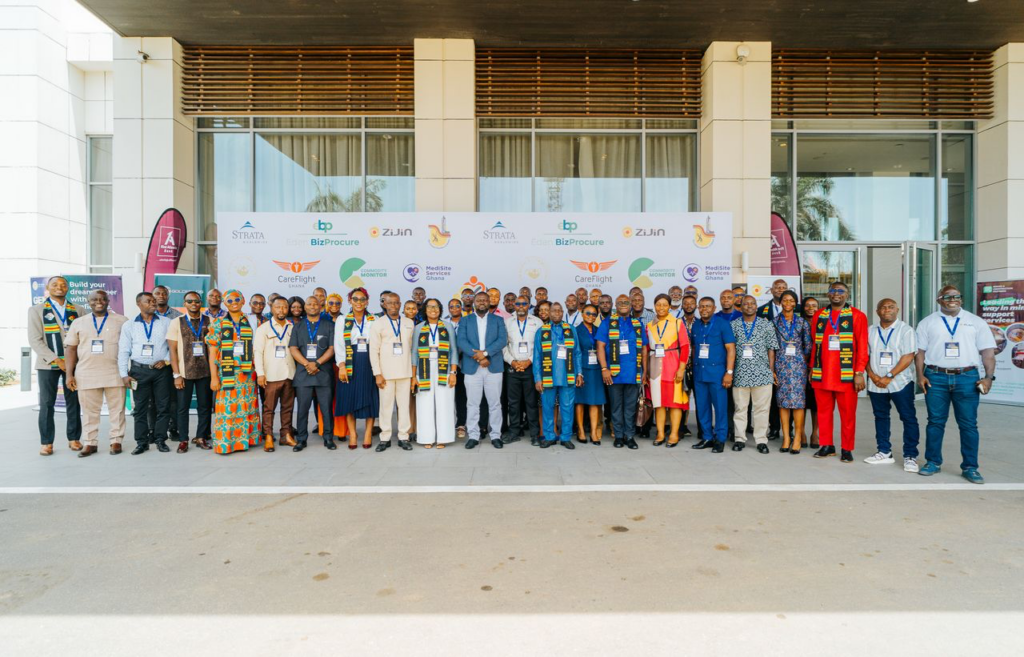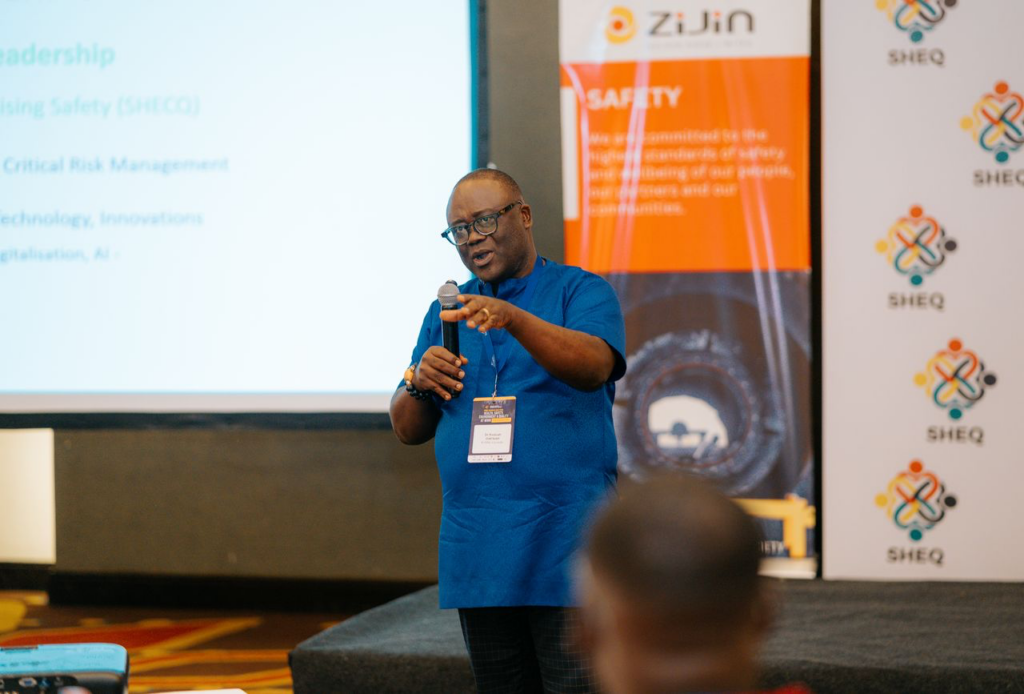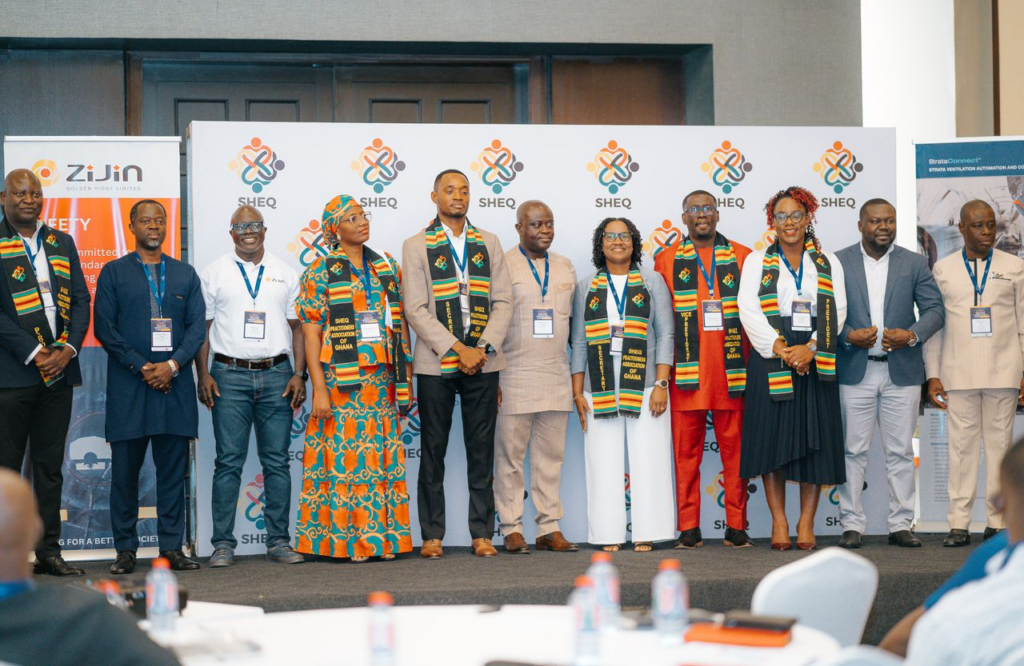The Chief Inspector of Mines at the Minerals Commission, Richard Kofi Adjei, has stressed that education and awareness are key to preventing workplace accidents, especially in high-risk sectors like mining.
Speaking at the maiden edition of the National Conference of the Safety, Health, Environment and Quality Practitioners Association of Ghana (SHEQPA-GH) in Accra, he emphasised the need for continuous training on workplace safety protocols.
“Marking the World Day for Safety and Health at Work reminds us that education is key,” he said.

“Safety officers must go beyond compliance and actively engage staff on the protocols that keep us safe.”
He noted that workplace safety must not be treated as a one-off campaign but rather a continuous, company-wide responsibility reinforced by leadership, safety professionals, and all staff.
Highlighting the rising role of innovation, Mr. Adjei urged companies not to let financial constraints block the adoption of artificial intelligence and digital solutions that save lives.
“The right safety equipment and systems may be expensive, but health and safety always override cost,” he stated.

Supporting the call, Deputy Chief Inspector of Mines Desmond Boahene advocated for safety inclusivity, especially for contractors who often operate in high-risk environments.
“We must ensure contractors are protected just as much as permanent staff. Safety must be universal,” he stressed.
Mr. Boahene also called for systems that reward adherence to safety practices, saying that “motivation and accountability go hand in hand in building a strong safety culture.”
The President of SHEQPA-GH, Akua Berantuo-Armooh, echoed the call for cross-sector collaboration to promote safer workplaces.
“Safety practitioners cannot do it alone. We need the full support of general managers and department heads. Everyone must play their part,” she urged.
Turning attention to the mining sector, Berantuo-Armooh acknowledged its solid regulatory framework but expressed concern over ongoing fatalities, which she said point to the need for further innovation.
“We’ve come a long way, but fatalities remain a concern. We must adopt technologies that help us proactively manage risks,” she said.

She also stressed the need for tailor-made safety procedures that reflect Ghana’s unique working conditions and cultural realities.
“Too often, companies import safety standards from corporate offices abroad without considering local risks. We need context-specific protocols that work for Ghana,” she emphasised.
The conference also featured a presentation by Ing. Dr. Koduah Dapaah, Managing Partner at K+MNJ Consults, who shared insights from the event’s theme: “Revolutionising Health and Safety: The Role of AI and Digitalisation at Work.”
He highlighted the need for modern safety tools and strong team coordination to reduce workplace fatalities.
The inaugural SHEQPA-GH conference formed part of activities marking the World Day for Safety and Health at Work.
It brought together policymakers and industry professionals and is expected to become an annual platform for dialogue, innovation, and action on workplace safety in Ghana.
DISCLAIMER: The Views, Comments, Opinions, Contributions and Statements made by Readers and Contributors on this platform do not necessarily represent the views or policy of Multimedia Group Limited.
Source link
